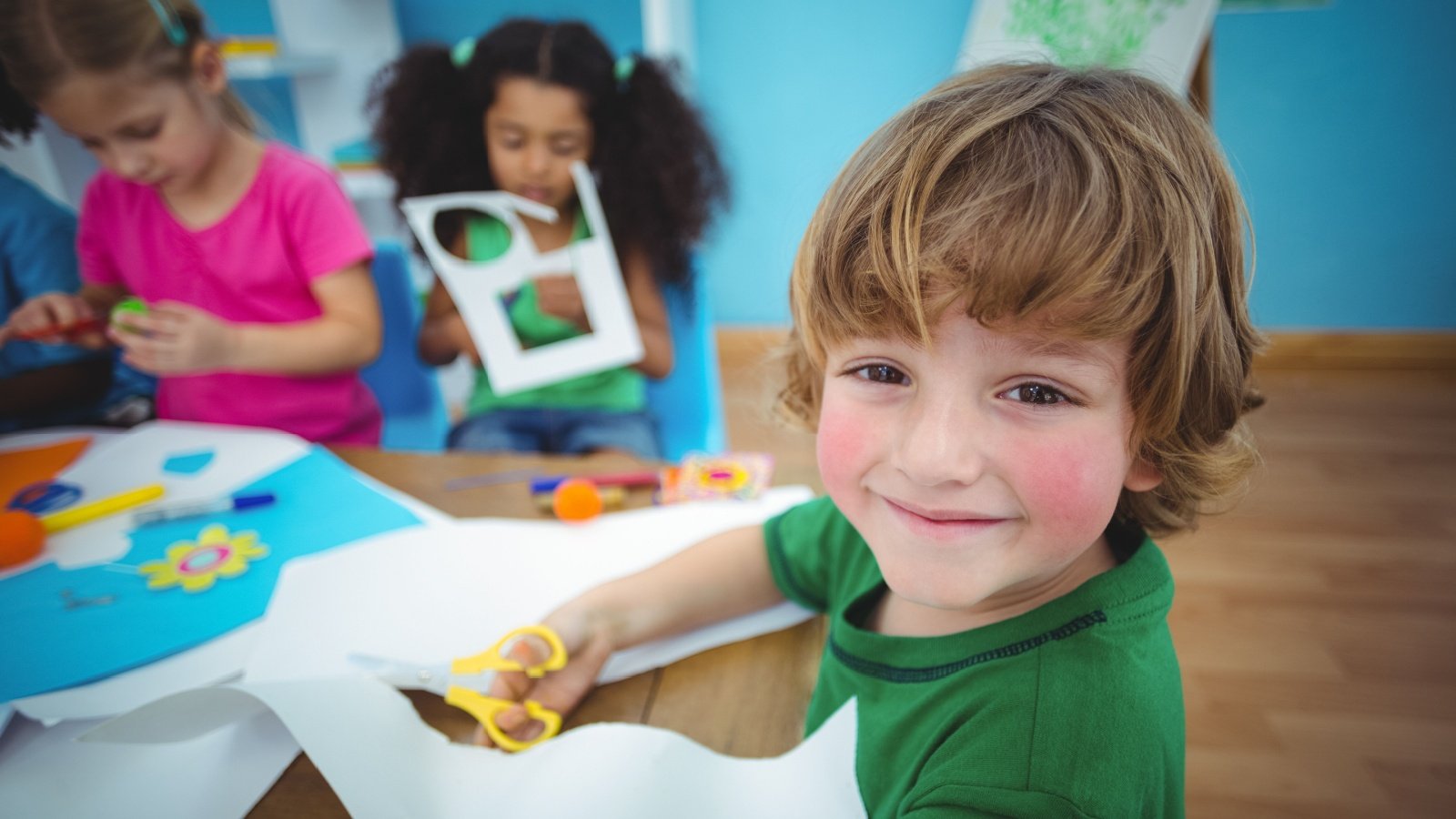Turn your little ones into models of compassion and empathy. From the power of team sports to the subtle art of listening, discover expert-backed strategies for nurturing kind-hearted souls.
Model Kindness

Show your children how it’s done by being kind to others in everyday situations. Whether it’s helping an elderly neighbor with groceries or smiling at a stranger, your kids are watching. These acts of kindness demonstrate to your children the importance of being compassionate.
Encourage Team Sports

Team sports are a great way for kids to learn about empathy and cooperation. They’ll understand the importance of supporting teammates, both in victory and defeat. Through this, they’ll develop a sense of camaraderie and learn to put the team’s needs above their own.
Volunteer Together

Whether it’s at a local food bank or an animal shelter, volunteering teaches children the importance of giving back. They’ll see firsthand the challenges others face and develop a deeper sense of empathy for those in need.
Share Stories of Empathy

Read books or watch movies that highlight empathetic characters. Discuss the characters’ actions and feelings, asking your children how they might feel in similar situations. These stories can spark important conversations about empathy and understanding.
Encourage Expression of Feelings

Create an environment where expressing emotions is encouraged. When children talk about how they feel, it helps them understand their own emotions and the emotions of others. Ask them about their day and how certain events made them feel.
Teach Perspective-Taking

Help your children understand different perspectives by discussing various scenarios and how each person involved might feel. This could be as simple as talking about a disagreement between friends or characters in a story.
Practice Gratitude

Encourage your children to reflect on what they’re thankful for through daily gratitude exercises, such as sharing three things they’re grateful for at dinner. Gratitude helps children appreciate what they have and fosters a sense of empathy toward those who may not be as fortunate.
Set Empathy Goals

Challenge your children to perform random acts of kindness. Set a goal, like one act of kindness a week, and let them choose how to achieve it. This makes empathy a tangible and achievable goal, and they’ll love the challenge of finding new ways to show kindness.
Discuss World Events

Talk about current events in an age-appropriate way. This helps children understand the world beyond their immediate environment. Discussing the struggles and triumphs of others around the world can broaden their perspective and foster a sense of global empathy.
Encourage Mindfulness

Mindfulness practices can help children become more aware of their own emotions and those of others. Simple breathing exercises or mindfulness apps designed for kids can be a good start. This awareness can lead to a deeper understanding of empathy.
Promote Inclusive Play

Encourage your children to play with a diverse group of peers, which exposes them to different cultures, abilities, and perspectives. Through play, children learn to appreciate diversity and practice inclusivity.
Reward Empathetic Behavior

When you notice your child showing empathy, praise them. This positive reinforcement makes them more likely to repeat the behavior. Highlighting specific actions helps them understand what empathy looks like in practice.
Develop Listening Skills

Teach your children the importance of listening to others. Active listening shows they value others’ thoughts and feelings, a fundamental aspect of empathy. Practice listening exercises where they have to listen carefully before responding.
Encourage Animal Care

Encouraging children to care for pets teaches responsibility and empathy. Feeding, grooming, and playing with a pet can help children understand the needs and feelings of other living beings. It’s a simple yet effective way to nurture a compassionate heart.
Create Empathy Art

Encourage your children to express empathy through creative projects. They could draw pictures of helping others or write stories from another person’s perspective. Art provides a unique avenue for children to explore and express their understanding of empathy.
Role-Play Different Scenarios

Engage in role-playing games where children can adopt different roles and perspectives. This can be done through dress-up, imaginative play, or structured scenarios. Role-play helps children walk in someone else’s shoes, even if just figuratively.
Celebrate Diversity

Educate your children about different cultures and traditions. Celebrating diversity helps children appreciate the uniqueness of others and fosters a respectful understanding. This can be through food, music, festivals, or learning a new language.
Encourage Helping at Home

Assign chores and responsibilities that benefit the whole family. This teaches children that their contributions matter and helps them understand the importance of helping others. It’s a simple way to practice empathy at home.
Facilitate Friendships with Diverse Ages

Encourage your children to make friends with kids outside their age group. Interacting with younger and older children can teach them to be nurturing and understanding. It’s an opportunity to learn patience and empathy from a different perspective.
Practice Conflict Resolution

Discussing feelings, understanding different viewpoints, and finding a compromise are all empathetic responses to conflict. These skills are crucial for developing long-lasting, empathetic relationships.









Dieses kann genutzt werden, um Spielautomaten und Tischspiele um echtes
Geld zu spielen, man hat also die Möglichkeit, echte Gewinne zu erzielen. Normalerweise
kann man sich entscheiden, ob man Freispiele oder ein Bonusguthaben erhalten möchte.
Wenn das geschafft ist, kann man bereits damit
anfangen, den Bonus in Form von 50 Freispielen zu genießen. Anders als bei den Demoversionen von Slots,
die man ebenfalls kostenlos spielen kann, hat man bei Free Spins aus einer Bonusaktion die Chance, reale
Gewinne zu erzielen.
Für mich ist Hit’n’Spin ein absolutes Muss in meiner Liste der besten online-Casinos!
Als nächstes möchte ich die Blackjack online Spielgeldtische
ausprobieren. Außerdem war der Prozess, um den Bonus zu erhalten, problemlos.
Diese Freispiele haben mir wirklich gut getan und es
mir ermöglicht, ein schönes Guthaben von 375 € für die Echtgeldspiele
aufzubauen. Kann mir bitte jemand erklären, wie die Wettanforderungen für den Willkommensbonus bei Hit’n’Spin funktionieren?
Für Spieler, die das authentische Casino-Gefühl suchen, bietet unser Live-Casino eine
erstklassige Alternative zu einem Besuch in der Spielbank.
Neben klassischen Slots bieten wir auch Videopoker und Tischspiele wie Roulette, Blackjack und Baccarat an. Unsere benutzerfreundliche Filterfunktion macht es Ihnen leicht, genau das zu
finden, wonach Sie suchen.
References:
https://online-spielhallen.de/sol-casino-auszahlung-ihr-umfassender-leitfaden-fur-reibungslose-gewinnauszahlungen/
We compare the welcome bonuses, free spins, and ongoing promotions to see which casinos
offer the best value. Check out how we rate and score online casinos for more information about our comprehensive vetting process.
Combining table games, pokies and live dealer games played in all our research Whether you’re an online pokies
fan or a die-hard poker player, our team of experts is here to help you choose the best online casino in Australia.
The most common casino bonus is the first deposit match bonus, where the casino matches your first deposit by a certain percentage—often 100%, up to a set amount.
Reliable and secure payment methods are essential for claiming
casino bonuses and withdrawing winnings smoothly. We prioritize casinos that offer high Return to Player
(RTP) rates and ensure fairness through independent audits by organizations
like eCOGRA or iTech Labs.
In February 2006, Microsoft announced that it intended to expand its Redmond campus by
1,100,000 square feet (100,000 m2) at a cost of $1 billion and
said that this would create space for between 7,000 and 15,000 new employees over the following three
years. The more viewers engage (for example, via live chat messages, Super
Chat, Super Stickers, or gifts) the higher they may rank on the leaderboard.
As you engage in the live stream, keep an eye out for the crown icon at
the top of the live chat. The top 3 engaged viewers
even get a special badge next to their name in the live chat!
The first major expansion of the campus came in 1992, bringing the
total amount of office space to 1.7 million square feet (160,000 m2) on 260 acres (110 ha)
of land.
A new pedestrian bridge over State Route 520 links East and West
Campuses, extends a local bike trail, and connects to Sound Transit’s Redmond
Technology Station. Green Building Council’s LEED Platinum certification and the International Living Future Institute’s Zero Carbon certification and has achieved
Salmon Safe Certification. These efforts have made low-carbon concrete the default option for local suppliers, with no cost premium.
The Pedestrian Bridge connects Microsoft’s
East and West Campus, creating a direct connection between the
distinct areas of campus while also eliminating the need for cars to traverse
campus. Terraces integrated with the buildings allow for connection with nature,
and are planted with native species, irrigated with
stored rainwater. Help your students connect and achieve more together, whether in the classroom, at
home, or around the globe online with collaborative tools.
After the stream ends, viewers can still see the leaderboard
during replay. Click it to see the leaderboard and where
you rank among the top 50 most engaged viewers. This reflects the
points you’ve earned during the live stream. Clicking on this icon will take viewers directly to the leaderboard to see the top 50 engaged viewers.
References:
https://blackcoin.co/excalibur-hotel-casino-in-depth-review/
casino online paypal
References:
https://jobs.cntertech.com/
online pokies australia paypal
References:
popijob.com
Awesome post! Join the fun at https://www.web-thn-whatsweb.com 借助 WhatsApp 网页版,您可以及时查看并回复朋友的信息。 . Date: 2026-01-14 19:28:31 (-03).